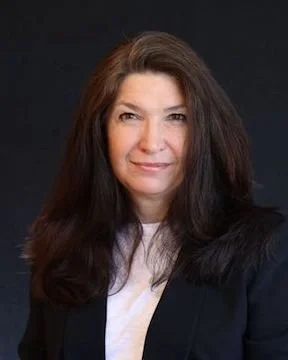IFS: Befriending Polarized Parts (1/10/25)
IFS: Befriending Polarized Parts (1/10/25)
Description:
This talk will provide a short overview of Internal Family Systems (IFS) and will then focus on a specific topic: identifying polarizations. When the therapeutic system seems “stuck,” polarizations may first emerge as interference accessing a person’s insight. In IFS, asking the un-blending question: “How do you feel toward it,” can point to a polarized part, for instance, the opposite position gets energized when working with the target part. A not uncommon polarization is part(s) that want to avoid pain vs. part(s) that have an urgency to fix, so they are no longer suffering. During this hour, we will discuss and come to understand more about how to identify a polarized pair, how to contract with parts, and how parts may become less reactionary towards each other.
Friday Lunch Series presentation from noon to 1 pm. 1 CE for Maine psychologists, social workers, and counselors Regular registration price: $35.
Objectives:
By the end of this presentation, participants will be able to:
Summarize the basic principle of “parts” from an IFS perspective.
Define what it means for parts to be “polarized.”
Identify protective parts and practice developing relationships with them.
Presenter Bio:
Lisa Palladino is a Clinical Psychologist licensed in Maine, California, and Colorado. She has a private practice in Yarmouth, Maine and also works as an affiliate of Psychology Specialists of Maine. She has been certified in EMDR since 2014, is Level 2 trained in Stan Tatkin’s PACT method for therapy with couples. She is certified through Integrative Psychiatry Institute as a Psychedelic Assisted Therapist, is certified as a Spiritual Emergence coach through Integrative Mental Health University and she is Level 3 trained and certified in Internal Family Systems. She has integrated IFS theory and technique in all facets of her creative work with individuals, couples and in Ketamine Assisted Psychotherapy. Additionally, she has a background in Jungian therapy, art therapy and frequently uses sand tray in her work. She has many parts that are driven by curiosity and believes that theory is best integrated through experiential learning.
Lisa became interested in IFS as a psychotherapeutic approach in 2012 when she completed a Level 1 training. Having graduated from Pacifica Graduate Institute which is deeply rooted in Jungian psychology, it was a very natural transition to view “parts” as complexes and the “Self” as the Self archetype. Additionally, In both IFS and Jungian therapy, healing involves dialoguing with inner parts or complexes. In Jungian terms, this might mean engaging in active imagination, dream analysis, or other creative techniques to communicate with these parts.
In addition to her ongoing studies of IFS and Jungian psychology, she specializes in psychedelic assisted therapy. She completed a dissertation in 2009 studying the impact of Ayahuasca on chronic, treatment resistant depression. She is currently offering ketamine sessions in Maine and in 2025 will be eligible to offer psilocybin sessions in CO.
A lifelong student, Lisa has an MFA in painting from the San Francisco Art Institute, she is certified as a spiritual emergence coach through Emma Bragdon’s Integrative Mental Health University, where she also studies the impact of spiritualist psychiatric hospitals in Brazil. Through the Integrative Psychiatry Institute she is certified in Psychedelic Assisted Therapy. She has completed the Level 2 training of Stan Tatkin’s Psychobiological Approach to Couple Therapy (PACT). She has been certified in EMDR since 2014. Lisa continues to support her studies in IFS by regularly attending consultation groups with Robert Falconer who specializes in the more fringe aspects of IFS, studying the impact of unattached burdens. She has completed all 3 levels of her training in IFS and is also certified in the modality. Her next pursuit is in studying Deep Brain Reorienting which appears to hold great promise for early childhood trauma.

